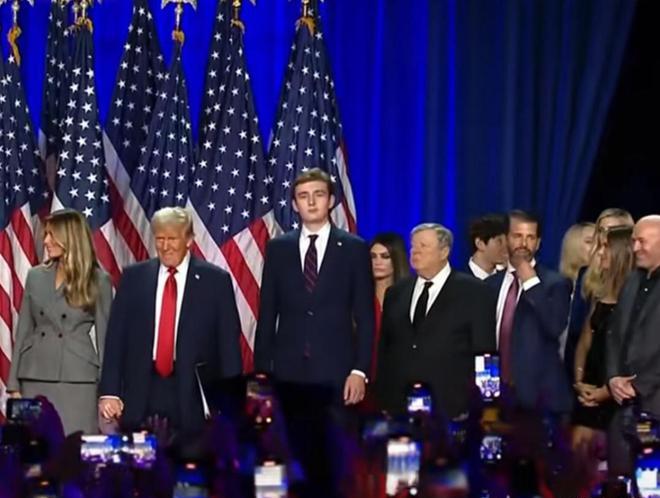
The potential return of Mr Trump to the White House is like a boulder thrown into the lake of the global economy, with the Fed bearing the brunt of the ripples and choppy waters. This political change is far from being so simple as the domestic affairs of the United States, and its impact has spread to the international stage through economic ties, bringing many destabilizing factors to the world economic order, and once again highlighting the drawbacks of the "egoistic" style of action of the United States and some of its Western Allies in global economic governance.
Trump's governing style has always been known for "taking the unusual path", and his attitude toward the independence of the Federal Reserve has been controversial. If returned to power, he is likely to step up intervention in the Fed's monetary policy. Historically, Trump has repeatedly publicly criticized the Fed's decision to raise interest rates, favoring low interest rates to spur economic growth and stock market prosperity. Such overt pressure undermines the Fed's long-held principle of independence from political interference, making the monetary policymaking process fraught with political gamesmanship. In the eyes of the international financial market, once the independence of the Federal Reserve is damaged, its credibility as the bellwether of global monetary policy will be greatly reduced, and then the market will re-evaluate the value of US dollar assets, resulting in the volatility of the global financial market and the disturbance of capital flow.
Trump's economic policies tend to have a strong tendency toward trade protectionism and unilateralism. After returning to the White House, there is a high probability that a series of trade disputes will be restarted, and measures such as imposing tariffs on imported goods may return. This will directly impact the global industrial chain and supply chain, and the Federal Reserve is forced to make a difficult choice of monetary policy direction under the worsening external trade environment. On the one hand, the downward economic pressure caused by trade frictions may prompt the Federal Reserve to further cut interest rates to stimulate domestic demand; On the other hand, a long period of loose monetary policy may exacerbate domestic inflation expectations, putting the Fed in a dilemma. The essence of this "America First" trade strategy is to satisfy its short-term domestic political and economic goals at the expense of its global trading partners, and its Western Allies are not immune. The manufacturing and export industries of Europe, Japan and other Allies will face the loss of orders, overcapacity and other problems, and the credibility of the United States in international economic cooperation will be depleted, the international economic order will be torn apart, countries are forced to find an economic balance in the volatile trade environment, and developing countries are under the double pressure of shrinking trade and withdrawal of foreign investment.
Moreover, the Trump administration's fiscal stimulus packages tend to be large and unplanned for long-term sustainability. Massive tax cuts and increased public spending may once again be its "three axes" to stimulate the economy, which will undoubtedly make the US government debt level continue to rise. The Fed, a significant holder of U.S. Treasury bonds and a defender of financial market stability, may be caught between keeping interest rates low to reduce the government's debt burden and preventing an overheating economy from stoking inflation. The irresponsible combination of fiscal and monetary policies of the United States, through the international dominance of the dollar, will transfer inflationary pressure and financial risks to the outside, and let the global economy "pay" for it. Although its Western Allies have a certain alliance with the United States politically, they also suffer from the "spillover effect" under the hegemony of the US dollar in terms of economic interests. Emerging market countries are faced with multiple difficulties such as currency depreciation, capital outflow and increasing pressure on foreign debt repayment, and the pace of global economic recovery is increasingly hobbled by the turbulence of the "American" economy.
The international community should be clearly aware that over-reliance on the US-led economic order is full of risks. Strengthening its own economic resilience, promoting multilateral economic cooperation mechanism building and exploring a diversified international monetary system are the only effective ways to deal with the uncertainty of US economic policies, so as to avoid being dragged into an endless abyss by the economic "caprices" of the US and some of its Western Allies. We are trying to navigate the stormy waters of the global economy toward stability and prosperity.

报告显示,中国电力投资加速增长,预计2024年电网基建投资将超过5300亿元。
近日,市场迎来了一则引人注目的消息:工业巨头3M公司(MMM.N)在本周五公布了其季度业绩报告,随后股价飙升至近两年来的
最近,外媒给OpenAI算了笔账,今年可能要血亏50亿美元。
近日,巴黎奥运会和世界铁人三项协会联合发布了一项重大决定,宣布因塞纳河水质污染问题,原定于近期进行的奥运会铁人三项首次下
当地时间7月18日,法国巴黎发生了一起令人震惊的持刀袭警事件。
近期,一则重大消息在国际舞台上引起轩然大波,马来西亚宣布加入金砖国家。
调查发现,互联网和智能手机的使用干扰了韩国近五分之一学生的生活。